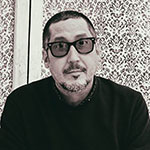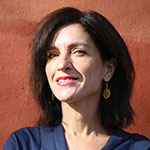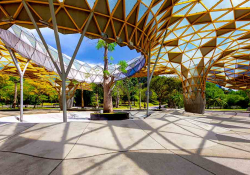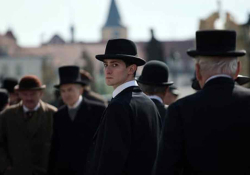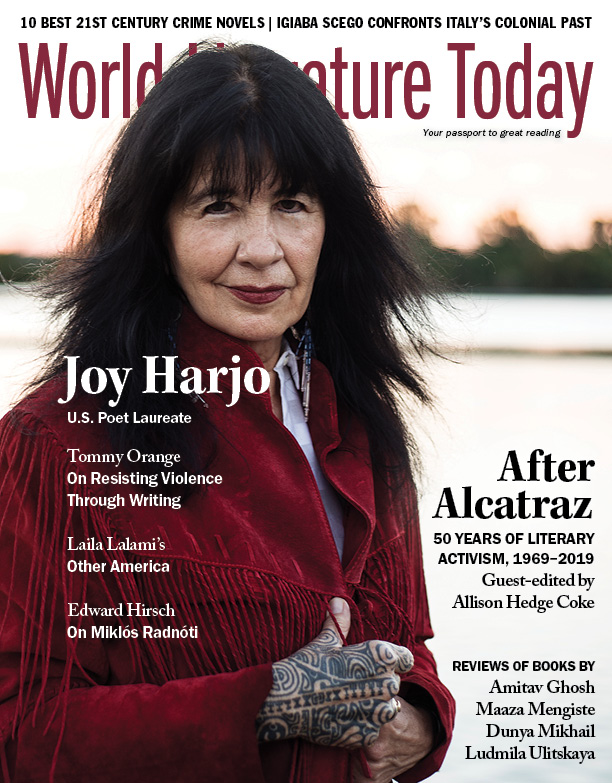A Date with Svetlana Alexievich in Berlin: or, Smuggling Bugs into Soviet Moscow
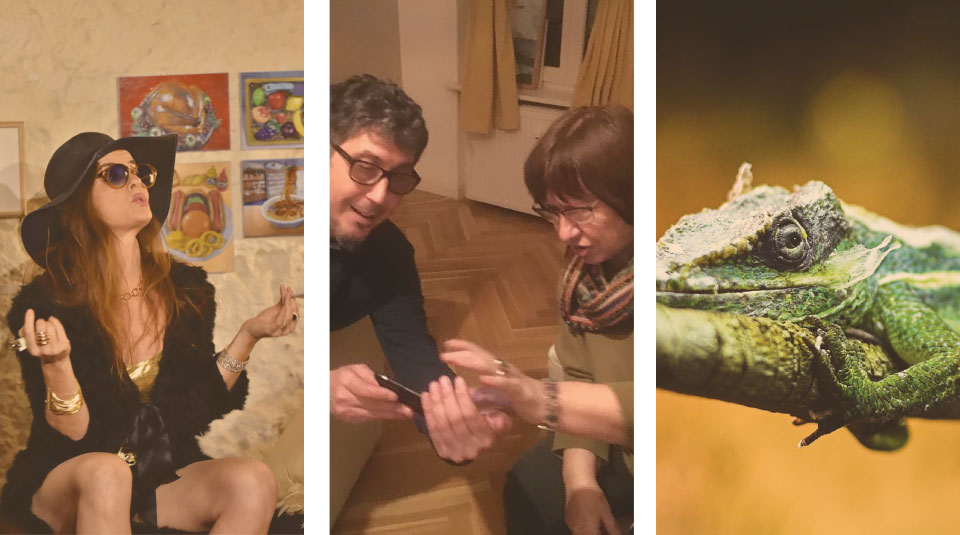
A Cuban writer, having lived in Soviet-era Moscow and East Berlin in the 1980s, reflects on real-life bugs and make-believe characters.
I hadn’t been back to Berlin since the mid-1980s, but I used to go there quite often as a teenager. In fact, Berlin was the first city I set foot in outside of Cuba. We stopped there on the way to Moscow for what back then was called “habilitation,” meaning the purchase of clothes at the state’s expense so that impoverished Cubans would not look so impoverished when they were seen in foreign lands. There were a couple of stores on Calle Galiano in Havana where travelers were sent as well. In fact, the visit to Galiano was the first leg of the trip. Buying shirts and underpants, ties and moccasins, was a trip unto itself!
The most senior of functionaries like my father—who back then held a position in a bank that was responsible for counting the money that Eastern Bloc countries owed one another—traveled to Berlin to “habilitate” themselves. If you were going to work in the East, you traveled first to Berlin, to East Berlin; if you were going to work in the West, you’d go instead to Paris or Madrid for such purchases. Thanks to that, I was able to see the Wall when it was still standing. I saw it from the front and from the side. And I saw it from above, from the window of an apartment where we stayed on one of the “habilitation” trips, and from where you could also see the West. Later we’ll return to that window, not to look outside, but rather to observe what’s going on inside.
It was on a night in East Berlin in 1982 when I discovered that real socialism allowed for the possibility of a table with decent provisions on it. I couldn’t accept anything less now.
I’m still the little savage I was then, and when I enter the apartment on Hussitenstrasse, 5, I go straight to the refrigerator. It’s empty. I have forty-six hours ahead of me in Berlin, an appointment with a lady who can lead me to another, the vague idea of locating the building where I spent my first night in Berlin in 1982. The empty refrigerator vexes me. I hoped to see a yogurt, at least, or a sausage or two. Though I certainly wouldn’t have touched anything. But it was on a night in East Berlin in 1982 when I discovered that real socialism allowed for the possibility of a table with decent provisions on it. I couldn’t accept anything less now.
I go outside and walk along the green space that follows the course of the Wall and its exclusion zone. It’s the Berlin Wall Memorial. The words of the trapeze artist in Wings of Desire come to mind, the film Wim Wenders shot shortly before the city and the world grew up in 1989: “In any case, you can’t get lost. You always end up at the Wall.” “Even when it’s no longer there,” I say to myself as I walk toward the Supersonico on Bernauer Street 71–72. A name for an Italian restaurant that seems particularly suitable for a continued overlapping of past and present, flooding the Berlin air with its accordion sound.
***
AT NIGHT I HEAD over to the Adlon Hotel and the Brandenburg Gate. I wander for a bit through the cold, dark streets. Later on, during dinner at a bistro surrounded by noisy, gay Germans, Arcadi Espada and I converse about the interview we're doing with Svetlana Alexievich the next day for the Spanish newspaper El Mundo. The ardor of our conversation and the serenity brought on by foie gras and tartare predispose us to walk home along Bernauer. I take a picture with my back to the Wall and my arms open. The foie gras–induced calm has been superseded by tackiness. I go to bed with Joseph Anton, the memoirs of Salman Rushdie, the story about how he became a writer. I let myself be swept along by the dream of the young Belarusian girl who ended up astounding the world with the most extraordinary fresco imaginable of the Soviet and post-Soviet world.
Svetlana Alexievich was waiting for us in an elegant apartment in Steglitz, to the south of Berlin. Her assistant wrote in a text, “Buzz ‘Barrios’ on the intercom.” Just like that, with “Barrios” in Spanish. I felt as if she were waiting for us on the comfortable side of my tongue.
Svetlana is a small and firm woman, with an affable face and manners that are soft but energetic. There’s a slight rural air about her. Perhaps it has more to do with the perceiving eye that places her in the middle of a wheat field where everything is rumor and murmur. She is a woman who has listened so much (she says of herself that she is a woman-ear in contrast to Flaubert, who called himself a man-pen) that she seems less interested in speaking than listening.
I’d seen her before; I was in the audience at a presentation she gave in Barcelona after she won the Nobel Prize. I could have approached her. I’d been seated in the second row, an excellent distance for greeting her from and also for spending the afternoon staring at her bizarre shoes. However, on that occasion, I preferred not to. There were many who wanted to greet the Nobel winner, but she looked exhausted and even said so in order to cut the performance short. I gave up my place in line.
Svetlana Alexievich became famous when she was awarded the Nobel Prize in Literature in 2015. Long before that, at the urging of Iván de la Nuez, who never takes his eye off the East, Ricardo San Vicente’s formidable translation of her first book—Voices of Chernobyl: The Oral History of a Nuclear Disaster—was published in Spanish in 2002. I was in the shower listening to the radio when I found out about the Nobel. I’d spent several months translating El fin del “Homo sovieticus” (Secondhand Time: The Last of the Soviets), the monumental closure to the first cycle of Svetlana’s work, and at that time, I was making my final revisions. My first memory was of Jaume Vallcorba, the great publisher who died in August 2014. He was the one who commissioned my translation, convinced that Svetlana would be awarded the Nobel sooner rather than later. And even though she did get it very soon, Vallcorba was no longer there to learn he’d been right.
Svetlana’s work constitutes a titanic effort to paint a fresco of the Soviet utopia in the voices of its protagonists. Victims and victimizers, “witnesses,” as she likes to call them.
Svetlana’s work constitutes a titanic effort to paint a fresco of the Soviet utopia in the voices of its protagonists. Victims and victimizers, “witnesses,” as she likes to call them (“The witness is the most important hero in literature,” she told us in Berlin), gathered in what she calls a “novel of voices,” in a choir that functions as a collection of types that sometimes seem like archetypes. The Unwomanly Face of War (1985), Last Witnesses: An Oral History of The Children of World War II (1985), Zinky Boys: Soviet Voices from the Afghanistan War (1991), Voices of Chernobyl: The Oral History of a Nuclear Disaster (1997), and Secondhand Time: The Last of the Soviets (2013) are the five pillars of a temple that she has erected to the memory of the “red man” or “homo sovieticus.”
Much of what Arcadi Espada and I talked to Svetlana about in the Steglitz apartment for two and a half hours came out as a tidy, proper interview, a kind of notarized record, published on December 9, 2018, in La Esfera de Papel, the cultural supplement of the Spanish newspaper El Mundo.
***
WHAT WE TALKED ABOUT that can’t be found in the published interview relates to Alisa. And it was Alisa, precisely, whom I was there to look for. Alisa Z., who inhabits “On a Loneliness that Resembles Happiness” in Secondhand Time. The actress Patricia Jacas put Alisa up on the stage, after sneaking into her life and the lives of her friends with the meticulousness and daring of a barbarian conquering a territory, populating it, and naming it.
One fall day in 2016 Patricia told me she was rehearsing Alisa Z.’s testimony to perform as a theatrical monologue. The monologue premiered the following summer at a wonderful party. No less than Albert Boadella, founder of the acclaimed Barcelona theater company Els Joglars, blessed the actress, playing a Russian. The evening of the premiere, standing at the edge of a lawn with an olive tree in the middle of it and a swimming pool enthusiastically added to the set, I knew something had been born. What I couldn’t see back then was that the creature would grow so much, and proportionately. So preoccupied, precisely, by proportion. By the proportion between the real and the invented. What is and what is created. Between reality and fiction.
Alisa grew, as characters grow, as people grow, as I have grown: with persistence, eating a good breakfast every morning, and celebrating the occasion of her existence with unrepentant dedication to breathing well. For Alisa that was even more important, because Alisa is a being who, above all and in moments of greatest splendor, exists on the stage, the place where it is crucial to breathe well.
Many months and some twenty performances later, Patricia came to me with what was both an offering and a request: “I want you to write another monologue for that character, so that Alisa lives beyond Svetlana’s book.” I like remembering that moment with music: a little Russian folklore and trumpets—yes, trumpets.
I’m not going to resort to any of the ways of naming the complex, altered, or even self-absorbed forms of literature to get closer to naming this adventure to come. I’m just going to simplify the problem for us to understand: (1) A Belarusian writer who operates by means of a method usually called “novel of voices” includes in a book a woman’s testimony; (2) An actress reads that testimony in Spanish translation, falls in love with the witness, takes that text to the theater, and constructs, in a parallel manner, a life in the real and digital worlds; (3) The actress asks the translator of the original text into the language in which she represents the character to write a new monologue for the witness, that is, to take her out of the realm of reality and transport her into fiction—from being a person, to turn her into a character and, instead of translating the life transcribed for her, write a future life for her.
A challenge like that, of course, required my going to see Svetlana to find out how much of Alisa there is in “Alisa,” how much of the person, how many people there are in that character, on what exact amount of reality must my fiction be based. I had to go to the source. And the source was Alexi-
evich, the only woman who had seen the Alisa in flesh and blood and who turned her into a printed text on which the whole subsequent sequence was built. “How much of a man is there in a man?” Dostoyevsky once asked himself in an expression that Svetlana likes to quote. That’s it.
“I came because I want to meet Alisa,” I blurted out after the customary greetings. We had never seen each other before, as I said, but I’d spent long months bent over the hundreds of pages of Secondhand Time: The Last of the Soviets, translating those stories one by one, moving between those registers, circulating the geography of the debacle of communism in the USSR, from Russia to Armenia, from the Caucasus to the Ukraine, from Belarus to Kazakhstan, walking from neighborhood to neighborhood in the ideal city that ended up broken into a thousand pieces, making even more blood flow out of a body that any forensic analysis would have deemed already deceased. My dedication authorized me to beg with a shotgun. “I came here because I want to see Alisa,” I said. And in a pitiful tone, I asked her, “May I meet Alisa?”
I had another question, a question I was holding onto since the other Alisa (the one that grew before my eyes and those of so many in Barcelona) became the axis around which a group of friends, her friends, revolved. As we were about to say goodbye, I showed Svetlana a brief greeting sent by Patricia Jacas from Barcelona on the screen of my phone. “She’s so beautiful,” she exclaimed, looking at her. And she added, alas, what I already knew, and what, by now, you’ll have already guessed: “She looks so much like Alisa!”
I left knowing I had everything Svetlana was willing to give me of Alisa. And that was a lot! But I won’t meet Alisa; the ties with her are broken. Svetlana could not or did not want to give me more Alisa than what she gave me in Steglitz, the neighborhood where Mr. Barrios is renting out his apartment. And on my way back to Barcelona the next morning, I was thinking that it was good, almost better that way, because now—and I had to tell Patricia this right away!— Alisa is ours and only ours. We don’t have to go out looking for anything different than what we can create out of her together.
***
THAT NIGHT ARCADI AND I dined at Einsunternull, adorned by Michelin with one star. I chose a kohlrabi carpaccio—which was indeed worth the effort and risk of climbing over even the highest walls.
***
THE NEXT MORNING Arcadi asked me to meet him at the Yada Yada Breakfast Club, in a part of the city that easily connects to the airport. The idea was doubly felicitous because the restaurant’s jovial and inexperienced waitresses later populated my dreams on the flight to Barcelona. But before, early in the morning and still under the spell of the previous day’s interview, I took the subway to Alexanderplatz. To see the square where thirty years earlier a teenager from the tropics had appeared, where he took his first steps out onto the streets of another world, with the Wall still looming above, when we first came to Berlin for “the habilitation.” Were you wondering about the bugs? Now they are arriving.
Fate had it that in Moscow, where I arrived in 1982, in time to start high school, we had to choose a school, or perhaps it was the other way around; the school, which specialized in biology, school no. 199 in the Cheriomushkinski district, chose me. One summer, before I flew to Havana on vacation, the school principal, a Soviet lady with a bun à la Valentina Tereshkova, asked me to bring back some tropical bugs for the fabulous terrarium on the school’s top floor. Accordingly, that August I traversed Bauta, a town nearby Havana, and Marianao, a residential neighborhood within Cuba’s capital, hunting down some cockroaches, cochineals, and a couple of lizards. That would be my contribution to the private zoo of the pupils of #199, at the Akademicheskaya metro station, in southeastern Moscow.
There was an unforeseen obstacle, however. That summer, after two years of living in Eastern Europe, we had a new “habilitation.” “I’m taking you guys to Berlin,” I said to my bugs inside their cardboard boxes. My memories are a bit hazy, but it’s safe to say that the cockroaches responded by waving their antennas with joy: sweets had already become scarce in Cuba. I don’t know about the lizards. Perhaps they responded with a bit more caution, wondering if there would be flies in far-off, sanitized Europe.
I only have a vague recollection of walking through the socialist Berlin of the eighties, but I retain a vivid memory of the nights when I hunted flies from the east side of the Wall to feed my tropical shrews, little bugs plucked from Havana to grow up in Moscow, just like me. Now you’ll understand why I don’t read Kafka’s Metamorphosis like you do.
Now you’ll understand why I don’t read Kafka’s Metamorphosis like you do.
I have a pristine memory—yes, that’s exactly how it was—of a long night fearing that my bugs would die. Like an entomologist of some NGO, I was sitting in front of the window looking at the tower that rises over Alexanderplatz. Along with the nights I spent staring at the sky waiting to see the fungus of a nuclear explosion bloom there, it’s one of the most memorable nights of my adolescence. And there were quite a few memorable nights. Everyone who lived in Moscow in 1984 experienced them. Or at least, everyone who listened to Pink Floyd and read Dostoyevsky.
If I were to make a film that narrated my childhood, as Alfonso Cuarón did in Roma, mine would be hit by a hurricane, as his was by an earthquake. But besides that, I would lift the camera out of Marianao and Bauta so that this adolescent could be seen watching cockroaches dream behind Berlin’s shutters, all of them, cockroaches and adolescent, taken from home and thrown into the world.
Translation from the Spanish
